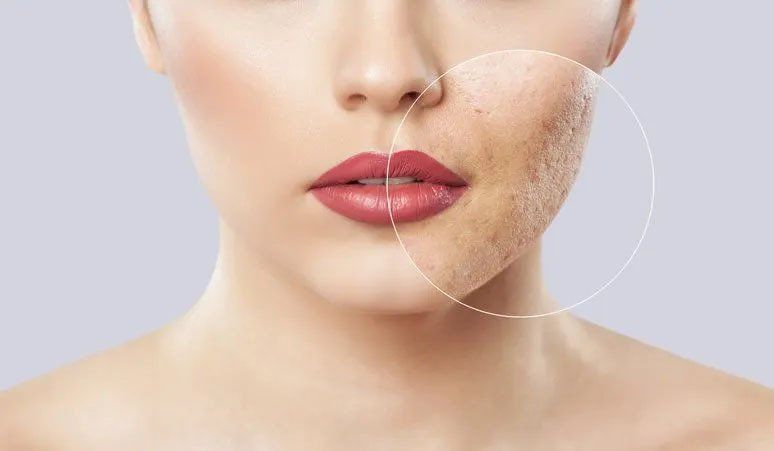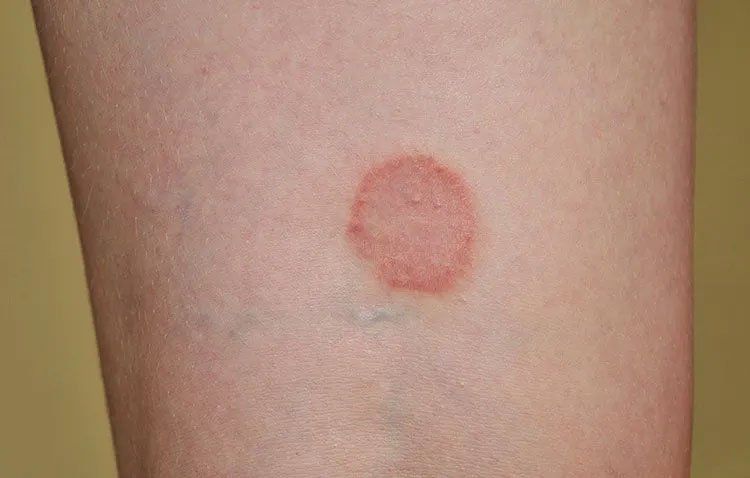Blog Layout
Frequently Asked Questions About Skin Tags
lemaster • Dec 11, 2020
Frequently Asked Questions About Skin Tags
Skin tags develop in almost one-half
of the adult population. While these elevated skin growths don't pose any significant health hazards, they can prove both uncomfortable and embarrassing, depending on their location. Fortunately, a qualified dermatologist can remove your unsightly skin tags safely and easily.
Since any unexpected change in the skin can cause concern or even alarm, it pays to understand some key points about skin tags, from appearance and associated risk factors to common methods of removal. Check out the answers to these frequently asked skin tag questions.
What Does a Skin Tag Look Like?
A skin tag usually consists of a soft, bulbous growth attached to the rest of the body by a stalk known as a peduncle. Skin tags may grow several centimeters in diameter, but they usually attain just a couple of millimeters
in size. Some skin tags appear more elongated than bulbous in shape.
Most skin tags either assume the same coloration as the rest of your skin or appear slightly darker, although a skin tag that has lost its blood supply may turn black. They usually appear wherever the skin encounters frequent frictions, such as the armpits or groin. They may also develop on the neck or eyelids.
Why Do Skin Tags Develop?
No one can say exactly why people get skin tags. Genetics would seem to play a role, since they tend to run in families. Hormonal changes in pregnancy may promote the development of skin tags. Obese individuals and individuals over 50 years of age often get them, although practically anyone can develop them.
Researchers have noticed an association between insulin resistance or triglyceride levels and skin tag risk. Studies indicate that sufferers from these issues have a higher risk of developing multiple skin tags. Diseases such as human papillomavirus (HPV) may also promote skin tag growth.
What Problems Can Skin Tags Create?
Fortunately, while skin tags qualify as a kind of tumor, they pose no threat of malignancy. If you can't tell whether you have a skin tag or some other abnormality, you should schedule an evaluation from your dermatologist. The findings will either set your mind at ease or allow you to get a more serious issue
treated early.
Even benign growths, however, can cause trouble. For instance, a skin tag on the back of the neck may get snagged painfully in a necklace. A torn or irritated skin tag may bleed and/or itch annoyingly. Long skin tags on the edge of the eyelid could interfere with vision. You might simply not like the way they look.
How Do Dermatologists Remove Skin Tags?
If you want to rid yourself of a skin tag, resist the urge to do it yourself with the aid of an over-the-counter kit. When performed outside of a medical environment, this kind of procedure can easily lead to bleeding or infection. It also skips the all-important step of professional evaluation and diagnosis.
Dermatologists have multiple ways of removing skin tags. Excision, which involves simply cutting the skin tag off at its stalk, offers a quick, simple solution. To reduce the odds of infection, the dermatologist may prefer to use cauterization, which burns the skin tag away while also closing the wound.
Cryotherapy provides yet another option for skin tag removal. In this procedure, the dermatologist freezes the skin tag with super-cold liquid nitrogen. The cold kills the skin tag, which then falls off within about 10 days.
How Can You Reduce Your Chances of Developing Skin Tags?
You can't fight genetics or aging, both risk factors in skin tag development. However, you can work to control certain other risk factors. For example, if you suffer from obesity, safe weight-loss strategies can eliminate that risk factor. Treatment for diabetes or other contributing conditions may also help.
If skin tags affect your quality of life, Spartanburg Dermatology & Skin Surgery Clinic, P.C., can evaluate them and get rid of them for you. Contact our office to schedule an appointment.

By lemaster
•
11 Feb, 2021
Your body is protected by your skin, which helps prevent damage to internal tissues and infection. However, the skin isn't impervious to disease and infection, and skin conditions are common at all stages of life. If you would like to learn more about your skin, check out these four skin diseases and conditions that are common in adults.
By lemaster
•
14 Oct, 2020
Lines around the eyes are almost impossible to hide. Makeup can sometimes make them more noticeable, and sunglasses are not acceptable to wear everywhere. A more effective solution is to learn the little habits that cause the lines to begin or worsen existing wrinkles. Additionally, use these four inexpensive and easy ways to reduce the risk of crow's feet and fine lines.
By lemaster
•
11 Jun, 2020
Lupus is an autoimmune disorder. If you have lupus, your immune system targets your tissue and organs. Unfortunately, you may suffer from skin rashes as your immune system attacks your skin. In fact, skin problems occur in 66 percent of patients with lupus, as noted by the Lupus Foundation of America. Fortunately, a dermatologist can help you combat the skin issues that arise from this disorder.

By lemaster
•
13 Feb, 2020
Even if you have fairly clear skin, you may be self-conscious about large pores. While you cannot change the size of your pores, you can make them less visible and make your skin brighter and smoother. Take a look at what causes large pores and how to deal with this skin issue.

By lemaster
•
11 Dec, 2019
Skin cancer is the most common cancer in the United States, affecting one in five people in their lifetime, according to the American Academy of Dermatology. While some types of skin cancer can be treated effectively, other types, particularly melanoma, can often be fatal. Take steps to prevent skin cancer and reduce your risk.

By lemaster
•
24 Jun, 2019
Whether you plan to spend every free moment outdoors, at parties, or on vacation with your friends or family, you want to have that quintessential summer glow while making sure your skin is still healthy. Below, we've listed a few summer skincare tips to help you keep your skin clear and have it radiate all season long.
Spartanburg Dermatology & Skin Surgery Clinic, P.C.
2020 North Church Street Place, Spartanburg, SC 29303 | (864) 582-3447 | Toll Free: 888-916-SKIN (7546) | Fax: 864-582-3449
Make Payment online at:
https://pay.instamed.com/Form/PaymentPortal/Default?id=SPARTANBURGDERM
My Cust. ID is 6937275551.
Website Design by Hearst Media Services, all rights reserved










